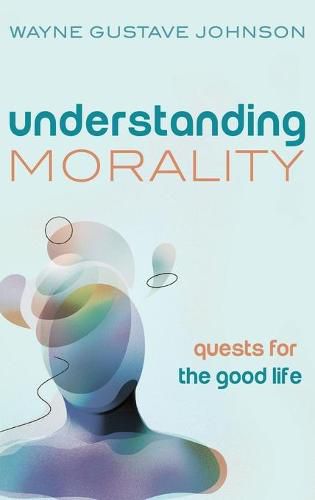Readings Newsletter
Become a Readings Member to make your shopping experience even easier.
Sign in or sign up for free!
You’re not far away from qualifying for FREE standard shipping within Australia
You’ve qualified for FREE standard shipping within Australia
The cart is loading…






This title is printed to order. This book may have been self-published. If so, we cannot guarantee the quality of the content. In the main most books will have gone through the editing process however some may not. We therefore suggest that you be aware of this before ordering this book. If in doubt check either the author or publisher’s details as we are unable to accept any returns unless they are faulty. Please contact us if you have any questions.
This book explains why moral systems necessarily develop and why they take the various forms that they do. Johnson argues that moral systems are best understood as attempts both to seek out ways of living a fulfilling human life and also to find ways of relating to others who also seek a fulfilling life. Philosophers generally agree that the moral pathway is also the fulfilling pathway. However, the moral pathways advocated and the kind of fulfillments envisioned depend upon beliefs about human nature as well as beliefs about the ultimate nature of things–a worldview. Aristotle, Epicurus, Saint Augustine, and Friedrich Nietzsche, for instance, had radically varying views about what constitutes a fulfilling life. Johnson argues that the moral quest involves properly arbitrating among the often competing wants, needs, and desires pursued by human beings. Not all such wants, needs, and desires can be fulfilled; some must necessarily go unfulfilled. This implies that a vast number of human choices are moral choices. For instance, who eats and who does not? Johnson gives no moral advice. His aim is to show the reader the nature of the moral choices they necessarily make.
$9.00 standard shipping within Australia
FREE standard shipping within Australia for orders over $100.00
Express & International shipping calculated at checkout
This title is printed to order. This book may have been self-published. If so, we cannot guarantee the quality of the content. In the main most books will have gone through the editing process however some may not. We therefore suggest that you be aware of this before ordering this book. If in doubt check either the author or publisher’s details as we are unable to accept any returns unless they are faulty. Please contact us if you have any questions.
This book explains why moral systems necessarily develop and why they take the various forms that they do. Johnson argues that moral systems are best understood as attempts both to seek out ways of living a fulfilling human life and also to find ways of relating to others who also seek a fulfilling life. Philosophers generally agree that the moral pathway is also the fulfilling pathway. However, the moral pathways advocated and the kind of fulfillments envisioned depend upon beliefs about human nature as well as beliefs about the ultimate nature of things–a worldview. Aristotle, Epicurus, Saint Augustine, and Friedrich Nietzsche, for instance, had radically varying views about what constitutes a fulfilling life. Johnson argues that the moral quest involves properly arbitrating among the often competing wants, needs, and desires pursued by human beings. Not all such wants, needs, and desires can be fulfilled; some must necessarily go unfulfilled. This implies that a vast number of human choices are moral choices. For instance, who eats and who does not? Johnson gives no moral advice. His aim is to show the reader the nature of the moral choices they necessarily make.